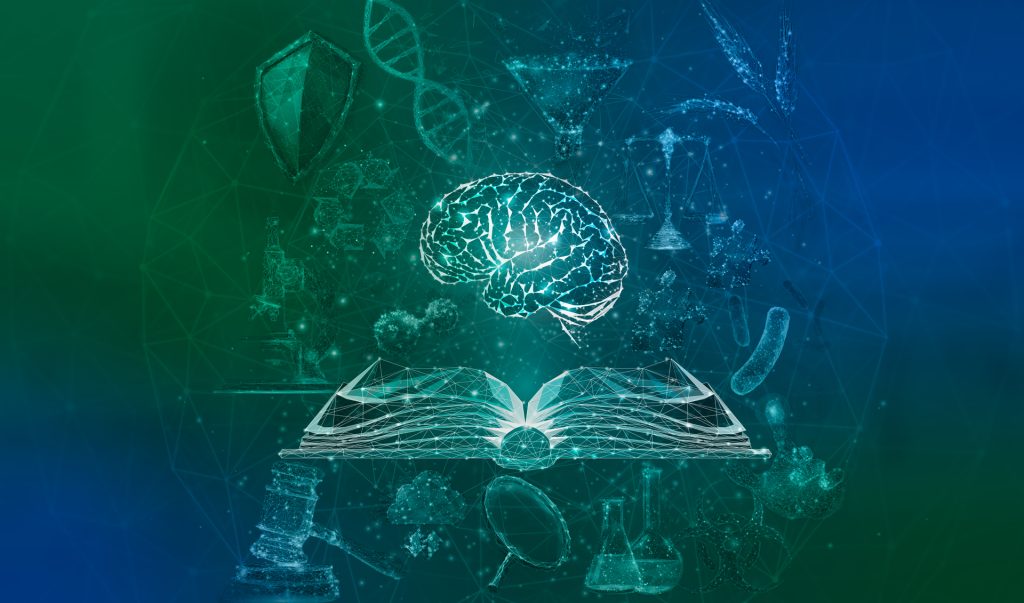Bioethics Services: 2023 in Focus

Although Bioethics Services was established in 2021 to streamline EMBL’s approach to human, animal, environmental and technological ethics, we really came into our own in 2023, launching a number of flagship initiatives that have been years in the making. We’d like to highlight just two of those initiatives here.
Ethics Academy
Our organisational values encompass openness, inclusion, integrity, transparency and fairness. These fundamental concepts should underpin everything that we do, whatever our role at EMBL. They should inspire and drive us, while also serving as a blueprint for best practice. But how do we ensure that we are living these values in our day-to-day working life, and what can we do if we feel we need additional training to bring us up to standard? We believe that the new EMBL Ethics Academy can help answer these questions.
The Ethics Academy is a collaboration with EMBL REIGN (the Research Ethics, Integrity and Governance Network) and is run by Bioethics Services. The Ethics Academy is available to anyone at EMBL, whether they work in front-line research or are engaged in an admin function, so that everyone has an opportunity to improve their ethics literacy. We run a range of courses – from bite-size to comprehensive – and offer something to suit everyone’s needs.
Offering training in three key categories: Bioethics, Data & Tech Ethics, and Workplace Ethics, the platform specifies whether a course is mandatory or optional, and outlines which courses fulfil a specific technical need (such as skills required to be a member of one of EMBL’s ethics committees, or to work with human data). We are also working towards gaining accreditation for some of our courses in line with ECTS standards and are exploring the possibility of working with universities from host sites to co-run some of our modules.
EMBL Ethics Board (EEB)
The EEB seeks to bridge “ethics-to-science” practice gaps arising in the course of EMBL’s research, providing EMBL researchers with expert advice on the practical implementation of ethical issues in the life sciences, particularly where there is limited external guidance on the issue. The EEB is set to consider topics such as research involving human embryonic models, AI and Machine Learning, gene editing, evolving models of consent, emerging technologies, organoids, dual use technologies, and beyond.
We aim to share EEB guidance with other interested stakeholders from the outset, with the goal of opening up the EEB to questions from other institutions within an EMBL Member State as soon as practicable. In this way, we hope to provide life science researchers with a unique route to seek guidance on emerging ethical issues as they happen, within the framework of a community committed to sharing ethical best practice in real time.
The full list of members are published on the EEB internet page.
The work of the Ethics Board is underpinned by three value-based pillars:
Firstly, to “Foster Trust in Research”, the Ethics Board will:
- Anticipate ethical concerns raised by new developments in scientific research, and asses what impact they have on different stakeholders
- Encourage collaboration and communication between all relevant stakeholders, scientists, policymakers, funders, society, etc. on these issues
- Provide consistency on managing “ethics-to-science” practice gaps in a European context
Secondly to “Enable Inclusivity and Dialogue“, the Ethics Board will:
- Practice multidisciplinary dialogue across areas such as science, medicine, law, technology, philosophy, theology and other relevant disciplines
- Facilitate communication with diverse publics to enable dialogue on the ethical, legal and societal impact of new developments in scientific research
- Ensure that the decision-making process considers the positions and perspectives of all relevant stakeholders, creating forums for dialogue between them
And Thirdly, to “Facilitate Transparency & Accountability“, the Ethics Board will:
- Propose independent guidance on applied ethical questions arising in life science research in a freely available format
- Advise on the practical implementation of ethical issues in the life sciences through the lens of a Board defined by expertise, multidisciplinarity and coordination
- Develop a variety of mediums to share best practice, such as through reports, White Papers, journal articles and beyond, as well as Seminars, Conferences and Symposia
So what is next for Bioethics Services? As well as embedding and expanding these two initiatives, we also have a number of other ethics-related projects across EMBL. In particular, we are conducting a large-scale audit of our processes through the ERA (Ethics, Risk and Assurance) Project, which has ambitious goals and is far-reaching in its approach (for example, a dedicated stream just focussed on AI Ethics). We look forward to sharing the outcomes of our activities with you all soon, and welcome any ideas or feedback you may have!